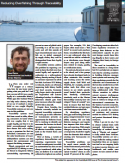
Research Reports
ELI publishes Research Reports available for free download that present the analysis and conclusions of the policy studies ELI undertakes to improve environmental law and policy. These reports contribute to education of the profession and disseminate diverse points of view and opinions to stimulate a robust and creative exchange of ideas. Those publications, which express opinions of the authors and not necessarily those of the Institute, its Board of Directors, or funding organizations, exemplify ELI’s commitment to dialogue with all sectors.
A review of the potential for seafood traceability systems to reduce illegal catch and mislabeling.
Read More >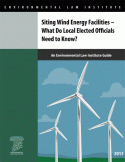
Siting Wind Energy Facilities – What Do Local Elected Officials Need to Know? is a brief guide to aid local officials in understanding commercial-scale wind siting. Local government officials presented with potential wind energy projects in their municipalities often find that clear and concise answers to their citizens ’ concerns can be difficult to locate.
Read More >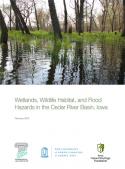
The Wetlands, Wildlife Habitat, and Flood Hazards in the Cedar River Basin, Iowa workshop report is the final report of the 2012 Wetlands Wildlife Habitat, and Flood Hazards in the Cedar River Basin Workshop designed to find ways to protect wetlands and wildlife habitat and promote resilience to flooding.
Read More >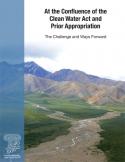
This report (1) details the impact that water quantity law and practice has had on water quality, and likewise water quality rules on water quantity management; (2) analyzes the legal authorities of states and the federal government over water quantity and quality, respectively, and briefly recaps the current state of takings law relevant to appropriative rights and the Clean Water Act; and (3) identifies laws, policies, government structures, and other factors that can advance relationships between, and ultimately the outcomes for, water quality and quantity management.
Read More >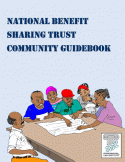
ELI has published a guidebook designed to help communities in Liberia develop and implement projects using funds from the National Benefit-Sharing Trust, an entity created by Liberia’s National Forestry Reform Law (NFRL) of 2006. Under the Trust, revenues from the country’s forest sector may be used to help communities develop according to their own priorities. The Trust collects a share of funds from the land rental fees that timber companies must pay the government and sets them aside for communities who are affected by commercial forestry activities.
Read More >